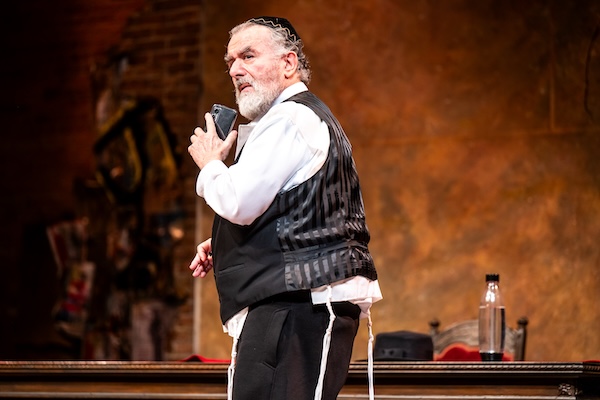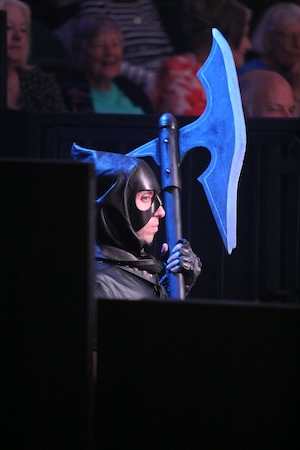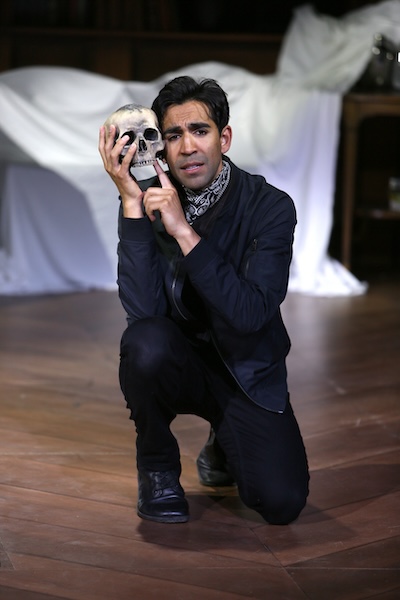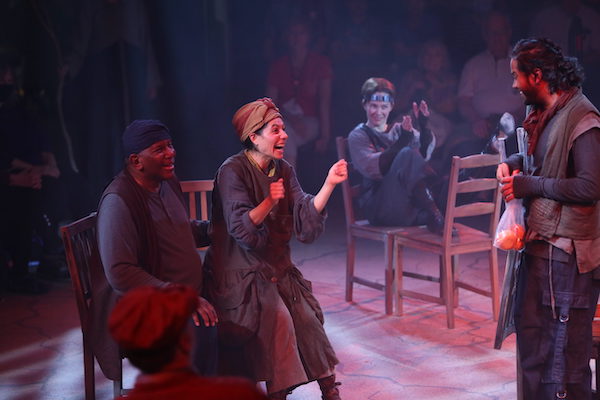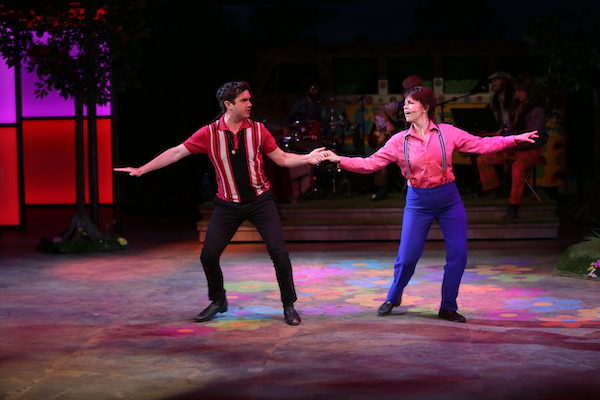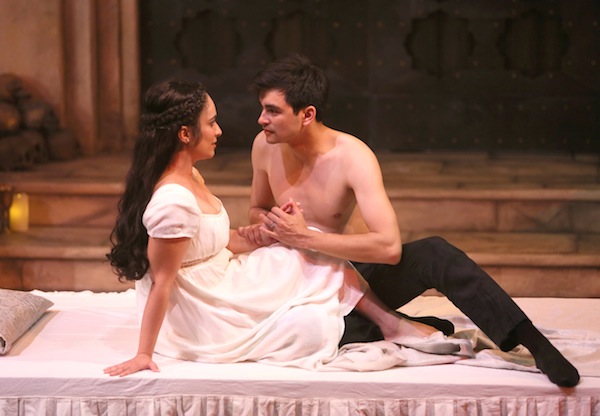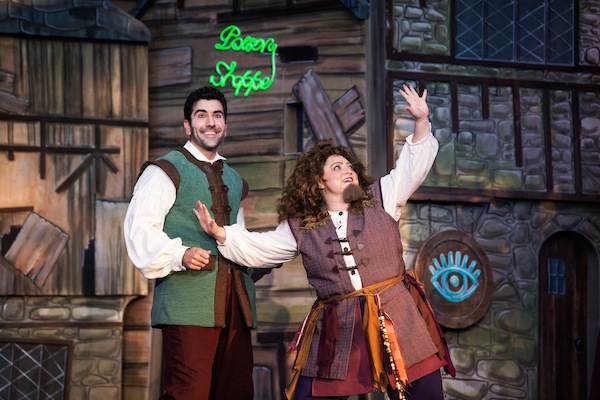Saul Rubinek in Mark Leiren-Young’s Playing Shylock, which is playing in Toronto. Leiren-Young wrote the work with Rubinek in mind. (photo by Dahlia Katz)
Victoria playwright Mark Leiren-Young spent October in Toronto, where his Playing Shylock is appearing at Berkeley Street Theatre through Nov. 24. The one-man show, which stars Saul Rubinek, is based on the Jewish character in Shakespeare’s The Merchant of Venice.
“I’ve been attending rehearsals, run-throughs and previews as a playwright,” Leiren-Young told the Independent from Toronto before the play’s world premiere. “That means I’m around to work on the script with the actor and director. Since it’s a new script, that means I’m adjusting it to reflect ideas that come up in rehearsals, working with the costumes, the designs and the space. Really, anything that needs doing to get the script as tight and right for the actor and the production as it can be – making sure ideas are clear, jokes land and that Saul is having as much fun as possible.”

Leiren-Young’s play Shylock first appeared on stage at Bard on the Beach in 1996. Playing Shylock, he said, is an all-new play with the same core premise: a production of The Merchant of Venice has been canceled in mid-run due to a controversy over the production.
“This is a bespoke piece that started during the COVID lockdown and I built it around Saul’s life experiences after studying his voice, his personal history, his greatest roles, his mannerisms,” Leiren-Young said. “This was written to sound like Saul and feel like Saul and not like a character or story created by me.”
In fact, when actor John Huston, who starred in multiple productions of Shylock, touring five provinces, asked Leiren-Young what was recognizable from that first play, the playwright responded, “The lines that Shakespeare wrote.”
“Beyond keeping some of Shylock’s best lines from Merchant of Venice, this is an all-new play because we’re in an all-new world,” said Leiren-Young. “And it’s a new world in so many ways. Think about how controversies played out before social media. Think about how the issues in theatre and society have changed, and the issues the Jewish community is facing.”
According to Leiren-Young, the original draft of Playing Shylock was completed a couple of years ago. Yet, he tries to update his plays to reflect current circumstances.
“This script always included a cancelation letter inspired by an actual cancelation announcement,” said Leiren-Young. “The original draft for Playing Shylock was inspired by a letter announcing the cancelation of a screening of the controversial opera The Death of Klinghoffer about a decade ago.”
The letter now, he said, is largely inspired by the decision of the Belfry Theatre in Victoria to cancel its January production of The Runner after protesters demonstrated and vandalized its property because they objected to a play about an Israeli volunteer with the Orthodox group ZAKA.
“Not just because it’s more current, it’s Canadian and more relevant to the times,” he said, “but because that letter appeared to be used as the template for canceling another play at a theatre across the street from the Belfry.”
Rubinek, a distinguished stage veteran, is widely known to film and television audiences. To name but a few of his credits: Wall Street, Barney’s Version, Frasier. This past June, the Globe and Mail placed Rubinek in the 25th spot on its list of the greatest Canadian actors of all time.
“I believe that if the people who made that list see this show, they’ll want to bump up his ranking by a fair bit. Watching Saul deliver Shakespeare’s lines is amazing. Watching Saul deliver my lines is a dream,” Leiren-Young said. “He’s 76 and he’s better on lines than any other actor I have ever worked with.”
Of the play, Rubinek said Leiren-Young “leaps into the historic controversy about the character of Shylock with gleeful relish and biting humour and then has the chutzpah to create a poignant study of why theatre should matter.”
The actor added, “To collaborate with on a new play – and I’ve done a lot of them – Mark is an actor’s dream: tirelessly inventive, generous, creatively stubborn in all the right places and, best of all, funny.”
This weekend, on Nov. 10, 2 p.m., at Victoria’s Congregation Emanu-El, Leiren-Young will give a talk about Playing Shylock, his original play Shylock, the character of Shylock, the impact and history of The Merchant of Venice and “anything else the audience that day wants to talk about.”
The author of numerous books, Leiren-Young is the only writer to win the Leacock Medal for Humour (Never Shoot a Stampede Queen) and the Science Writers and Communicators Award for Canada’s best science book (The Killer Whale Who Changed the World).
Leiren-Young’s Sharks Forever is a non-fiction book for middle-school readers and features an introduction by environmental activist Paul Watson. His next book, Octopus Oceans, is being released in early 2025. He is currently working on a new book for young readers focusing on how to protect the oceans and the animals who live there.
To follow Leiren-Young online, visit his website, leiren-young.com, and his Substack page, substack.com/@skaanapod?.
Sam Margolis has written for the Globe and Mail, the National Post, UPI and MSNBC.

